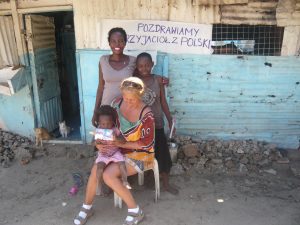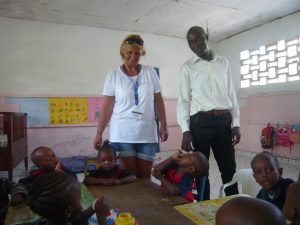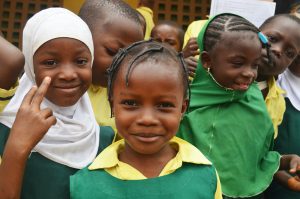African Children’s Day is a holiday that we celebrate on 16 June on the initiative of the Organisation of African Unity and UNICEF. The event commemorates the 1976 massacre of children in Soweto near Johannesburg in South Africa by the local racist regime. Police opened fire on protestors against the low level of education of children, killing over 100 people.
We talk to our expert Anna Watoła, PhD, about the school under the baobab tree, research conducted among children from the Masai tribe and from Wasimi Island.
Violetta Kulik: When starting pedagogical research, the researcher faces many difficult challenges. One of them concerns the selection of appropriate research methods. Is it difficult to choose the best one?
Anna Watoła, PhD: Each method in its assumptions contains many different methodological conditions. Considering the purpose of the planned research, the choice of the most appropriate methods seems to be quite a difficult and often debatable task. In 2012, I made my first visit to several African schools located in Tanzania and Kenya near the Shimoni Coast, Mombasa and on the outskirts of the Amboseli National Park. For several years, I have been conducting research among the school and university community, using numerous research methods. After many discussions among academics, I started using the action research method.
Violetta Kulik: What is the action research method?
Anna Watoła, PhD: Action research is a type of research that involves both taking action and creating knowledge or theory based on this action. This method enables to connect theory and practice, activities with exploration, and learning with teaching. It is about combining thoughts and actions, theory and practice, through cooperation with other people. The result of these activities is the process of achieving practical solutions that are particularly important; they significantly improve the situation of the individual and the entire community in which the individual functions.
Action research brings new knowledge with specific action, a practical result that is a matter of deep reflection. The aforementioned practical result changes the existing organisational and social reality for the better. In action research, the researcher is the main inspirer and actively participates in specific activities.
Violetta Kulik: For several years you have been organising campaigns to help children from poor regions of Kenya and Tanzania by creating educational conditions for them. What did you manage to implement with the action research method?
Anna Watoła, PhD: The use of the action research method is particularly appropriate when there is a chance of obtaining a change for the better of the existing situation. Then an action plan is developed to bring about a change, then it is implemented and the results of the actions taken are monitored. After several years of work, I managed to install photovoltaic panels for electricity generation in a nursery in a small village of the Maasai people living on the outskirts of the Amboseli National Park and systematically deliver school supplies for children from a school on the Indian Ocean island – Wasini and to several schools at the foothills of Kilimanjaro in Tanzania. Four years ago, together with Anna Brosch, PhD, and Tomasz Huk, PhD, DSc, Assoc. Prof., decided to provide financial assistance to the pupils from the Good Samaritan Vision orphanage in Kilifia (Kenya).
Violetta Kulik: You also established scientific contacts with universities in Kenya. What are the results of the cooperation?
Anna Watoła, PhD: I have established scientific contacts with four universities in Kenya: Pwani University, Kenyatta University, Technical University of Mombasa, Koitaleel Samoei University College of Nairobi.
The result of these contacts is active participation in several scientific conferences in Kenya and participation in scientific and research projects under the Horizon 2020 programme, as well as the publication of several scientific articles. Currently, ideas related to the implemetation of teaching practice in Kenyan schools by students from Europe are waiting to be implemented. I hope that students from the University of Silesia will also have a chance to take part in this difficult, ambitious but very exotic “scientific adventure”.
Violetta Kulik: Thank you very much for the interview.








